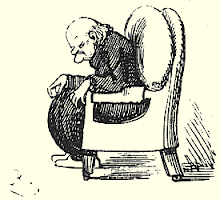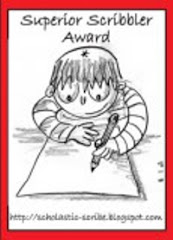My favorite line in "To Kill a Mockingbird" isn't one of the real clinchers-- it isn't the heart-pounding moment in court where Mayella Violet Ewell screams that Tom Robinson raped her, "and if you fine GENTLEMEN aren't gonna do nothin' about it, then you're nothin' but a bunch of lily-livered COWARDS!" It isn't part of Atticus Finch's beautifully-crafted closing argument, his calculatedly passionate, unfortunately intellectual plea to spare the life of an innocent man, guilty only of being black in Maycomb.
My favorite line in "To Kill a Mockingbird" is said by little Scout. It's late at night, and Scout, in her comfortable, casual way of relating to the reader as if they were a friend, says, "Tired, I wanted Atticus."
It's a plain statement of fact, unashamed and unadorned, spoken by a child. Short, soft, and beautiful. What man wouldn't be sent straight off to Heaven knowing that, when his child is tired after a day of unrelenting reality, all she wants is to curl up in his lap and rest her head against his tweed-vested chest, and drift away asleep? I can remember reading that line as an eighth grader over and over again thinking, "I know just what she means." Even at fourteen, I wasn't too old that I didn't remember or appreciate the power of older arms enfolding you. Now, at thirty, I cannot wait until I can provide that selfsame comfort for my own child.
It's hard to imagine now that, when "To Kill a Mockingbird" was first written, and even when the film was first released, that it was a book and film of controversy. It is, of course, quite impossible for us to fathom how an educated, white lawyer defending a poor black man accused of raping a white woman could be controversial. After all, cases like that in one way or another happen without registering a blip on the controversy meter. And that's not to even mention the secondary controversy arising from Atticus Finch raising two children on his own-- single, middle-aged fathers were hardly the norm in those days.
Driving to work yesterday morning, I heard a review of "The Social Network" on NPR. It was an enthusiastic review. NPR latches onto certain movies with all the zeal of a rabid dog (remember the one that Atticus shoots down in the street?) and "The Social Network" is the latest artificial-butter-slathered flavor of the month. Amongst other things, the film was referred to as "controversial."
A film about a couple of petulent, privileged, white 20somethings and intellectual property law.
Now, I haven't seen it, and I'm probably not going to (I'm a curmudgeon, remember?) but I wonder if the notion of the word "controversial" has changed due to a paradigm shift in our culture, or our perceptions, or our morals. Maybe it's just a word thrown around without much thought, intended only to pique interest and sell tickets. I don't know. When I think of controversial films, I think of "In the Heat of the Night." I think of "Mississippi Burning." Of course, controversy and race do not always have to go together, but perhaps for my own personal definition of "controversy," it seems that they do go together-- or, in my mind, should. I wonder sometimes if we are so deluded, or even diluted, as a society that we mistake manufactured drama, or conflict, for controversy.
It's kind of like the difference between melodrama and tragedy-- a distinction that the chair of my alma mater's theatre department tried to drive into us one day during Intro to Drama.
"Running over a cat is melodrama. It's only tragic if you're the Crown Prince of Denmark and you run over a cat and it turns out the cat was your brother and you're married to its sister and you go crazy with guilt just as you're about to ascend to the throne and you drink poison, throw up into your daughter's mouth and kill her and her unborn child who would have grown to be your heir."
Mark Zuckerberg ain't no Crown Prince of Denmark. I'm tired, and I want Atticus.
Lauren Soloy’s The Newest Gnome: A Quiet Adventure
11 months ago














dude, we're on the fast train to cultural hell. i can't believe you're even questioning that basic precept. that orange girl got a book deal. we're pretty much screwed. :)
ReplyDelete